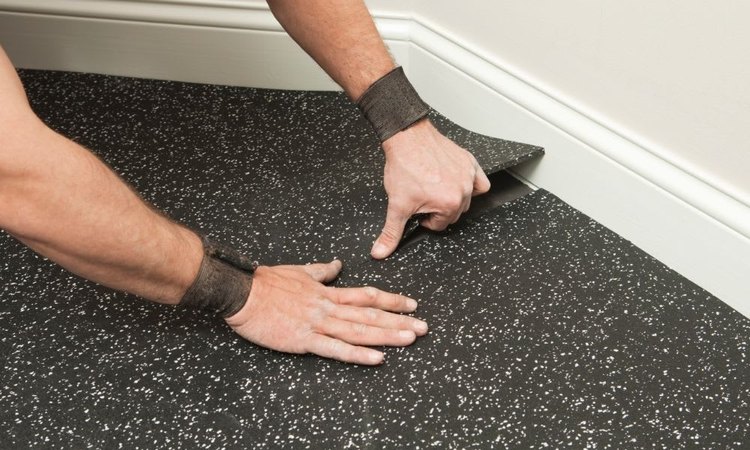Transforming Outdoor Spaces: A Guide to Resin Flooring Installation
Resin flooring has become an increasingly popular choice for outdoor areas, offering a durable and attractive solution for patios, gardens, and driveways. This versatile material combines aesthetics with functionality, making it an excellent option for homeowners looking to enhance their outdoor living spaces. In this comprehensive guide, we'll explore the benefits of resin flooring and provide insights into the installation process for various outdoor applications.

The versatility of resin flooring extends to its aesthetic appeal. Available in a wide range of colors and finishes, it can complement any outdoor design scheme. Whether you’re aiming for a modern, minimalist look or a more traditional appearance, resin flooring can be customized to suit your preferences. Moreover, its seamless nature means it’s easy to clean and maintain, requiring minimal upkeep compared to other outdoor flooring options.
How does resin flooring installation work for patios and gardens?
Installing resin flooring in patios and gardens involves a multi-step process that requires careful preparation and execution. The first step is to assess the existing surface, ensuring it’s clean, dry, and free from cracks or damage. Any imperfections must be repaired before proceeding with the installation.
Next, a primer is applied to the surface to enhance adhesion. Once the primer has dried, the resin mixture is prepared according to the manufacturer’s instructions. This mixture is then poured onto the surface and spread evenly using specialized tools. For patios and gardens, many homeowners opt for a textured finish to improve traction and create a more natural appearance.
The resin is left to cure, which typically takes 24 to 48 hours, depending on environmental conditions. During this time, it’s crucial to protect the area from foot traffic, debris, and adverse weather. Once fully cured, the result is a smooth, durable surface that enhances the overall look and functionality of your outdoor space.
Can resin flooring be used for driveways, and what are the benefits?
Resin flooring is an excellent choice for driveways, offering numerous benefits over traditional materials like concrete or asphalt. One of the primary advantages is its permeability. Resin-bound systems allow water to drain through, reducing the risk of puddles and ice formation during wet or cold weather. This feature also makes resin driveways environmentally friendly, as they help to prevent surface water runoff and reduce the strain on local drainage systems.
In terms of durability, resin driveways can withstand the weight of vehicles without cracking or sinking, provided they are installed correctly on a suitable base. They are also resistant to oil spills and other common driveway stains, making maintenance easier. The aesthetic appeal of resin driveways is another significant benefit. With a wide range of color options and the ability to incorporate decorative aggregates, homeowners can create a unique and attractive entrance to their property.
Installation of a resin driveway typically involves laying a base of compacted aggregate, followed by the application of the resin mixture. The process is similar to that of patio installation but may require additional preparation to ensure the surface can support vehicle weight.
What are the key considerations for outdoor floor installations?
When planning an outdoor floor installation using resin, several factors need to be taken into account. First and foremost is the preparation of the existing surface. A stable, well-draining base is essential for the longevity and performance of the resin flooring. This may involve excavation, leveling, and the installation of a suitable sub-base material.
Climate considerations are also crucial. While resin flooring is generally weather-resistant, extreme temperature fluctuations can affect the curing process and long-term performance. It’s important to choose a resin system that’s appropriate for your local climate and to schedule the installation during suitable weather conditions.
Another key consideration is the intended use of the space. Different areas may require varying levels of slip resistance or durability. For example, a poolside patio might benefit from a more textured finish for safety, while a driveway would need to be able to withstand vehicle traffic.
How does resin flooring compare to other outdoor flooring options?
Resin flooring offers several advantages over traditional outdoor flooring materials. Here’s a comparison of resin flooring with other common options:
| Flooring Type | Durability | Maintenance | Aesthetics | Cost Estimation |
|---|---|---|---|---|
| Resin Flooring | High | Low | Highly customizable | $50-$100 per sq ft |
| Concrete | High | Medium | Limited design options | $6-$15 per sq ft |
| Pavers | Medium | Medium | Various patterns available | $10-$30 per sq ft |
| Wooden Decking | Medium | High | Natural look | $15-$35 per sq ft |
| Natural Stone | High | Medium | Luxurious appearance | $20-$50 per sq ft |
Prices, rates, or cost estimates mentioned in this article are based on the latest available information but may change over time. Independent research is advised before making financial decisions.
While resin flooring may have a higher upfront cost compared to some alternatives, its longevity, low maintenance requirements, and customizable aesthetics often make it a cost-effective choice in the long run. It provides a seamless, modern look that can significantly enhance the value and appeal of outdoor spaces.
In conclusion, resin flooring offers a versatile and durable solution for various outdoor applications, from patios and gardens to driveways. Its combination of practicality and aesthetic appeal makes it an attractive option for homeowners looking to upgrade their outdoor spaces. By considering the specific requirements of your project and working with experienced installers, you can achieve a beautiful and long-lasting outdoor floor that enhances your property for years to come.






